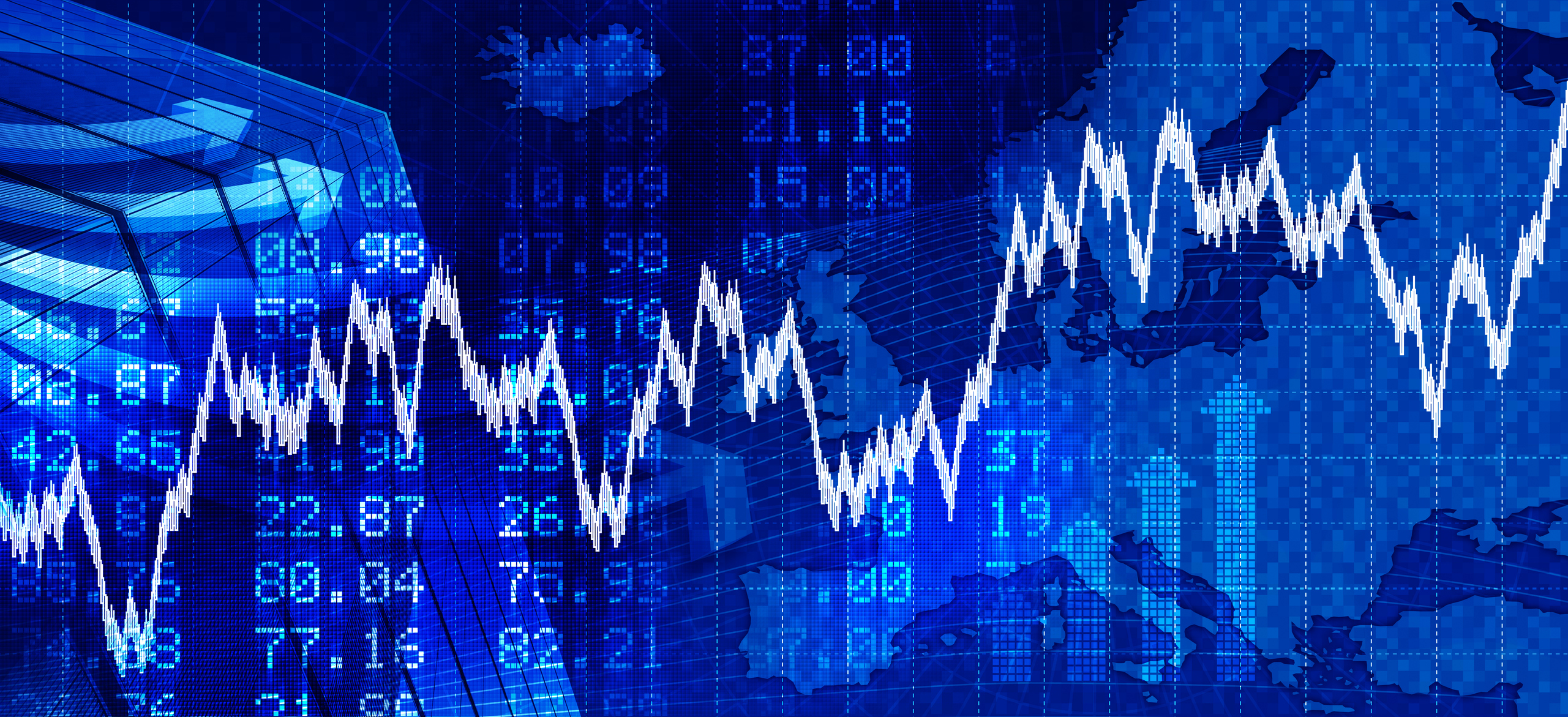Metals prices wobble on slowdown fears
The S&P GSCI index of 24 major raw materials has fallen back 9% since mid-June on growing fears of a recession, and copper has hit a 16-month low after losing 22% since a peak in early March.

Get the latest financial news, insights and expert analysis from our award-winning MoneyWeek team, to help you understand what really matters when it comes to your finances.
You are now subscribed
Your newsletter sign-up was successful
Want to add more newsletters?

Twice daily
MoneyWeek
Get the latest financial news, insights and expert analysis from our award-winning MoneyWeek team, to help you understand what really matters when it comes to your finances.

Four times a week
Look After My Bills
Sign up to our free money-saving newsletter, filled with the latest news and expert advice to help you find the best tips and deals for managing your bills. Start saving today!
“There really is no pretence now that the Fed [hasn’t], in an act of penance for allowing inflation to get out of control, donned a horsehair shirt and is fully prepared to drive the US economy into recession,” says Albert Edwards of Société Générale. The more important question is whether bringing about a recession will dispel fears about inflation. “The outlook for commodities is key, especially with the backdrop of the war in Ukraine. But I still see commodity prices plunging just like in Q4 2008.” Back then, headline inflation dropped from 5% to -2% in just 12 months.
Certainly, recent trends in commodities have been more bearish. The S&P GSCI index of 24 major raw materials is up 31% in 2022, but has fallen back 9% since mid-June on growing fears of a recession. Copper, a key gauge of the global economy’s health, has hit a 16-month low after losing 22% since a peak in early March. “In a downturn, construction slows – copper is used in wiring and plumbing – and other industries make fewer things like electrical equipment, which also uses the metal,” says Lawrence Strauss in Barron’s.
Meanwhile, Chinese benchmark iron-ore prices are down 43% over the past year. China’s “voracious economy usually consumes about half of global industrial metal supply and more than 70% of the world’s iron ore”, says Lex in the Financial Times. About 40% of domestic steel (which is produced from iron ore) goes into the property sector, but Beijing’s crackdown on excessive leverage means that “floor space both sold and newly started is dropping at double-digit rates year on year, [a situation] not seen since the global financial crisis”.
MoneyWeek
Subscribe to MoneyWeek today and get your first six magazine issues absolutely FREE

Sign up to Money Morning
Don't miss the latest investment and personal finances news, market analysis, plus money-saving tips with our free twice-daily newsletter
Don't miss the latest investment and personal finances news, market analysis, plus money-saving tips with our free twice-daily newsletter
Aluminium is also trading close to a one-year low, “with zinc and nickel not too far behind”, says Ehsan Khoman of bank MUFG. As well as faltering demand from China, “higher than expected Russian supply is leading to more stocks being deposited on to European exchanges”.
EV metals run out of charge
Not everyone is gloomy. Commodities have yet to peak, say analysts at Goldman Sachs. “Economic growth and end-user demand [are] simply slowing, not falling outright.” Yet some key electric vehicle (EV) metals – cobalt, lithium and nickel – may still be heading for a rough patch. There has been “a surge in investors’ capital into supply investment tied to... long-term EV demand... essentially trading a spot-driven commodity as a forward-looking equity”, say Goldman’s analysts. The result of short-term oversupply is that lithium prices, up more than 400% over the past year, are heading for a “sharp correction” over the next two years, and cobalt and nickel will also weaken. However, long-term structural demand from more electric vehicles should bring a rally after 2024.
“Commodities bulls may soon regret their enthusiasm,” says Gary Shilling on Bloomberg. The very long-term trend is for commodity prices to fall as people find cleverer ways of using resources. “Except for brief rises during wars and the 1970s oil embargoes, inflation-adjusted prices have fallen steadily since the mid-1800s, by a total of 83%... Bet on human ingenuity, not shortage-driven chronic price rises.”
Get the latest financial news, insights and expert analysis from our award-winning MoneyWeek team, to help you understand what really matters when it comes to your finances.
Alex is an investment writer who has been contributing to MoneyWeek since 2015. He has been the magazine’s markets editor since 2019.
Alex has a passion for demystifying the often arcane world of finance for a general readership. While financial media tends to focus compulsively on the latest trend, the best opportunities can lie forgotten elsewhere.
He is especially interested in European equities – where his fluent French helps him to cover the continent’s largest bourse – and emerging markets, where his experience living in Beijing, and conversational Chinese, prove useful.
Hailing from Leeds, he studied Philosophy, Politics and Economics at the University of Oxford. He also holds a Master of Public Health from the University of Manchester.
-
 New PM Sanae Takaichi has a mandate and a plan to boost Japan's economy
New PM Sanae Takaichi has a mandate and a plan to boost Japan's economyOpinion Markets applauded new prime minister Sanae Takaichi’s victory – and Japan's economy and stockmarket have further to climb, says Merryn Somerset Webb
-
 Plan 2 student loans: a tax on aspiration?
Plan 2 student loans: a tax on aspiration?The Plan 2 student loan system is not only unfair, but introduces perverse incentives that act as a brake on growth and productivity. Change is overdue, says Simon Wilson
-
 How a dovish Federal Reserve could affect you
How a dovish Federal Reserve could affect youTrump’s pick for the US Federal Reserve is not so much of a yes-man as his rival, but interest rates will still come down quickly, says Cris Sholto Heaton
-
 'Investors should brace for Trump’s great inflation'
'Investors should brace for Trump’s great inflation'Opinion Donald Trump's actions against Federal Reserve chair Jerome Powell will likely stoke rising prices. Investors should prepare for the worst, says Matthew Lynn
-
 The challenge with currency hedging
The challenge with currency hedgingA weaker dollar will make currency hedges more appealing, but volatile rates may complicate the results
-
 Can Donald Trump fire Jay Powell – and what do his threats mean for investors?
Can Donald Trump fire Jay Powell – and what do his threats mean for investors?Donald Trump has been vocal in his criticism of Jerome "Jay" Powell, chairman of the Federal Reserve. What do his threats to fire him mean for markets and investors?
-
 Freetrade’s new easy-access funds aim to beat top savings rates
Freetrade’s new easy-access funds aim to beat top savings ratesFreetrade has launched an easy-access exchange traded fund (ETF) range - here’s how the ETFs work and how they compare to the savings market
-
 Go for value stocks to insure your portfolio against shocks, says James Montier
Go for value stocks to insure your portfolio against shocks, says James MontierInterview James Montier, at investment management group GMO, discusses value stocks and slow-burn Minsky moments with MoneyWeek.
-
 Halifax: House price slump continues as prices slide for the sixth consecutive month
Halifax: House price slump continues as prices slide for the sixth consecutive monthUK house prices fell again in September as buyers returned, but the slowdown was not as fast as anticipated, latest Halifax data shows. Where are house prices falling the most?
-
 Rents hit a record high - but is the opportunity for buy-to-let investors still strong?
Rents hit a record high - but is the opportunity for buy-to-let investors still strong?UK rent prices have hit a record high with the average hitting over £1,200 a month says Rightmove. Are there still opportunities in buy-to-let?